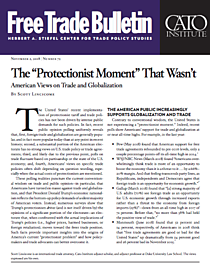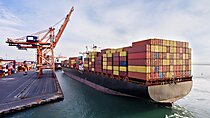
Study
318 results found

Globalization: Curse or Cure? Policies to Harness Global Economic Integration to Solve Our Economic Challenge
The Globalization of Human Well-Being

The “Protectionist Moment” That Wasn’t: American Views on Trade and Globalization
Retail Globalization and Household Welfare: Evidence from Mexico
WTO Report Card III:
Globalization and Developing Countries
The Pandemic Does Not Justify Protectionism or Deglobalization
Skilled Immigration, Task Allocation, and the Innovation of Firms

The Regressive Nature of the U.S. Tariff Code: Origins and Implications

The Vagaries of the Sea: Evidence on the Real Effects of Money from Maritime Disasters in the Spanish Empire

Local Labor Market Effects of the 2002 Bush Steel Tariffs

The Long-Run Effects of Immigration: Evidence across a Barrier to Refugee Settlement

Immigrant Labor and the Institutionalization of the U.S.-Born Elderly

Policy Experimentation in China: The Political Economy of Policy Learning

Getting Schooled: The Role of Universities in Attracting Immigrant Entrepreneurs